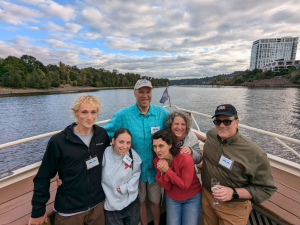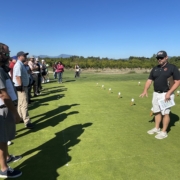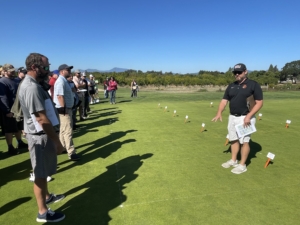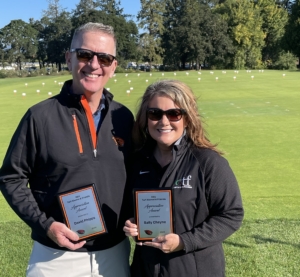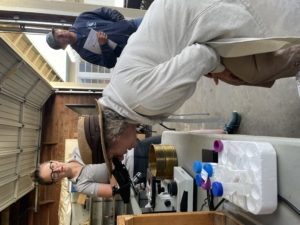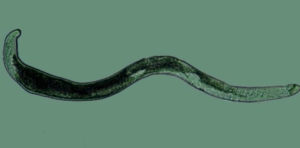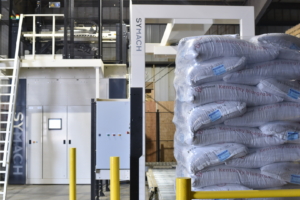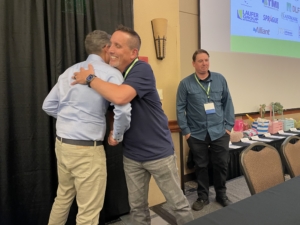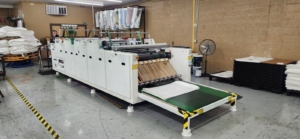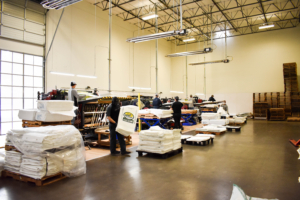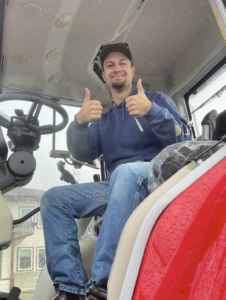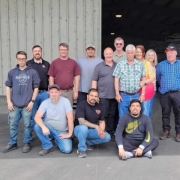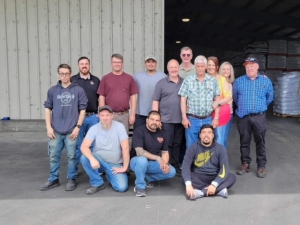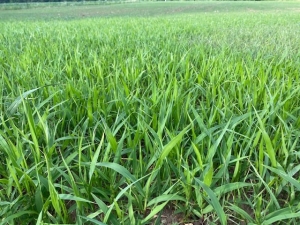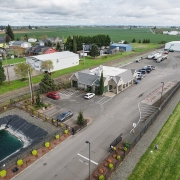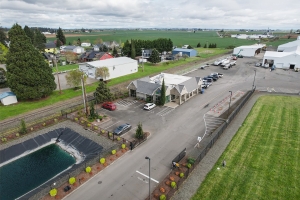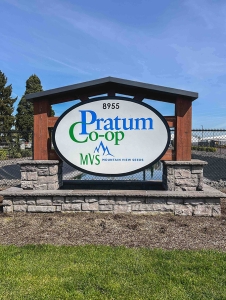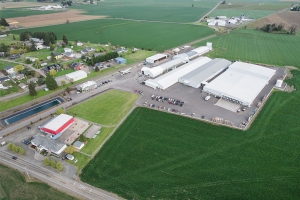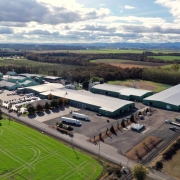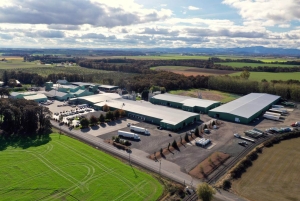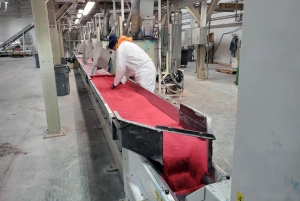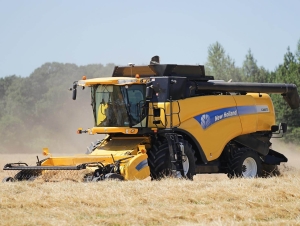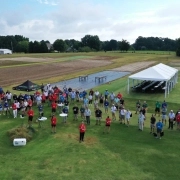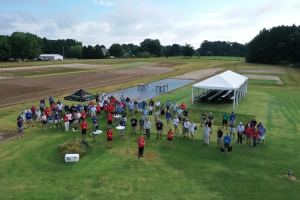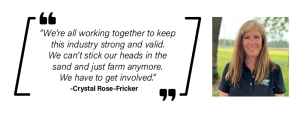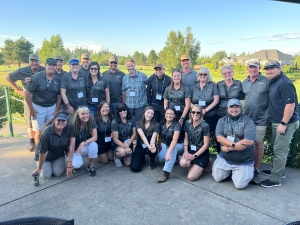Double River Forwarding Navigates Global Events to Deliver Seed For the World
As the owner of a small freight forwarding and logistics company based in Portland, Tina Lyons is always keeping a close eye on the news.
Global events can have a major impact on her clients and business. Lately, she’s been monitoring conflict in the Red Sea that has led to reduced ship traffic through the Suez Canal for fear of attacks. That means more vessels and more cargo are having to travel longer distances before reaching their final destination.
“It would be nice to take a news break, but I can’t,” said Lyons, of Double River Forwarding LLC. “World peace would really help a lot.”
Tina Lyons, back, waves in front of a container vessel with employees Josephine Lyons and Jennifer Dawkins.
Lyons founded Double River in 2008. She previously spent 16 years in the commodity trading and freight forwarding industry before striking out on her own. The company’s name refers to the convergence of the Willamette and Columbia rivers in north Portland.
Double River specializes in shipping agricultural products around the world, including wheat, corn, hazelnuts, and grass seed. Lyons estimated as much as 90% of their clients are farmers. The company handles bookings with shippers, documentation, and other services to ensure these products get from Point A to Point B.
“I like to help people, and I like to make people happy,” Lyons said.
Export challenges
Lyons joined OSA as an associate member in 2020, right as the COVID-19 pandemic was beginning to cause major supply chain disruptions.
The biggest benefit, she said, has been developing close relationships with seed producers. Those connections have allowed her to learn more about the Oregon seed industry, and also share with OSA members what issues are affecting exports.
“Sometimes you have to explain broader issues as to why their cargo isn’t getting to (its destination),” Lyons said. “It can be really hard to explain that to people. Customers’ heads aren’t in this all day long. They’re just trying to sell their products.”
An ocean vessel loaded with containers. (Source: Wikipedia)
For example, Lyons said the COVID-19 pandemic threw shipping schedules into chaos. Bookings aboard vessels were difficult to find, and constantly changing. Even finding empty containers for exports was difficult — shipping lines were instead sending empty containers back to places like China to fill with higher-priced imports, essentially leaving exports behind with nowhere to go.
Things haven’t gotten much easier in the years since pandemic lockdowns. Russia’s invasion of Ukraine and the conflict in Gaza have altered shipping routes, leading to greater congestion at European ports. Ship traffic was also recently restricted through the Panama Canal due to drought, resulting in another bottleneck.
It is up to Lyons and her team to help customers navigate these complex challenges.
“It’s a big wheel,” she explained, “and the cogs aren’t all in the right place right now.”
A team approach
Lyons has four employees at Double River, including two in their Portland office, one based in Roseburg, and one on the East Coast in Jersey City, N.J.
Together, they move approximately 4,000 forty-foot equivalent containers worth of cargo every year. A forty-foot equivalent container, or FEU, measures 40 feet long, 8 feet wide, and 8 feet tall. For all 4,000 FEUs, that adds up to about 100,000 metric tons of goods.
Oregon grass seed goes all over the world, Lyons said. She can take out a globe and start pointing to every country where Oregon seed is sold, beginning with Tasmania. By the time she gets to Egypt, people usually get the point, she said.
Shipping grass seed does come with its own set of unique challenges. Import restrictions tend to be higher, Lyons said, and testing requirements are more stringent.
Freight forwarding and logistics can be a stressful job, Lyons said, with all the uncertainty caused by factors outside of their control.
“Luckily, we have awesome customers,” she said. “It helps to ease everything.”
Interested in contacting Double River Forwarding LLC? Click here to learn more!
The Double River team — Tina Lyons, Jennifer Dawkins, and Josephine Lyons — gathered with their significant others.




